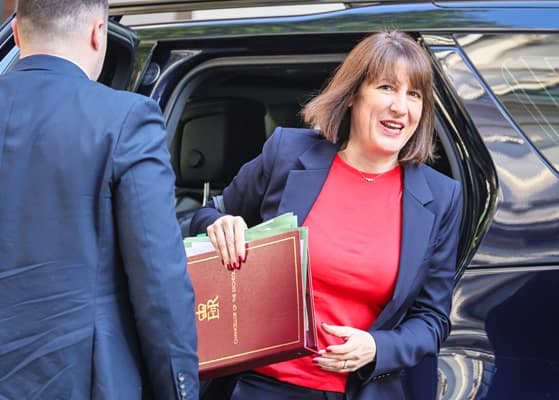The UK is facing a quiet financial crisis: millions are unknowingly locking themselves out of long-term wealth by refusing to invest.
This is the stark reality revealed by new data, which shows that only 6% of Britons are currently invested in the stock market.
While a healthy savings habit is important, simply saving without investing is not a long-term financial strategy.
The nation is sitting on idle cash, eroded by inflation, while global markets continue to create wealth for those willing to take a smarter, broader view of their finances.
Nigel Green, CEO of global financial advisory deVere Group, believes this is a national issue with personal consequences.
“Saving is ‘perceived’ as safe. But relying only on savings is, in today’s world, short-sighted,” he says.
“If we’re serious about helping people secure their futures, build financial independence, and reduce long-term pressure on the state, we must urgently change the conversation around investing.”
According to the latest YouGov findings, nearly half of all UK adults have never invested in stocks or shares.
Among young adults aged 18–24, the figure is even lower. The same research shows that fear of risk is the main barrier—and yet, not investing comes with its own serious risks, particularly as inflation continues to chip away at the real value of cash.
“We need to shift the narrative,” Nigel Green explains.
“Leaving money in cash accounts might feel comfortable, but it’s not keeping up with the rising cost of living. Over time, that erodes purchasing power and widens the wealth gap between savers and investors.”
The reluctance to invest also has broader economic implications.
Investment fuels innovation, funds growth, and supports job creation. When more people invest, whether directly in markets or through ISAs, pensions, or managed portfolios, the economy benefits through capital flow and financial resilience.
“We have to make investing feel accessible, not elite,” says the deVere Group CEO.
“It’s not about picking stocks or watching markets all day. It’s about understanding the long-term value of putting your money to work across global opportunities, with appropriate guidance and risk management.”
He is calling for clearer, bolder messaging on the importance of investing, not just from financial professionals, but across government and education.
“We’ve seen how powerful public messaging can be when it comes to savings. We now need the same visibility around investment.
“Every young person should understand compounding. Every working adult should know the difference between saving for the short term and investing for their future. This knowledge shouldn’t be limited to a select few.”
The YouGov data also revealed that even among those with disposable income, a large portion do not feel confident enough to invest. That gap between capability and confidence is exactly where intervention is needed.
“Confidence comes from clarity,” says Nigel Green. “We need better tools, better communication, and a cultural reset that sees investing as a vital part of financial wellbeing, not an optional extra.”
deVere has seen growing engagement from younger investors globally, particularly in markets where financial literacy is prioritised early. But many Britons are still held back by outdated perceptions, or by simply not knowing where to begin.
“The most important step is the first one. Investing doesn’t need to start big—it just needs to start. The sooner individuals engage, the more options they have over time, and the more control they have over their financial lives,” adds Nigel Green.
He warns that the cost of inaction is rising. With real interest rates barely outpacing inflation, those who keep their wealth in cash risk being left behind, especially as markets remain resilient and globally diversified portfolios continue to deliver long-term returns.
“This is not a call for recklessness. It’s a call for responsibility,” concludes Nigel Green.
“People deserve to know that there is a smarter way forward, and it begins with understanding that investment is not speculation, it’s strategy.”UK’s wealth crisis: It’s time Brits started investing

